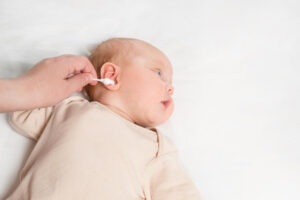Introduction - How does a cochlear implant benefit one?
In this article, Dr Shree Rao talks about how living with a cochlear implant actually looks like. She is the Best Doctor for Cochlear Implants.
The main key difference between hearing aids and cochlear implants is how they process sounds. Hearing aids amplify all sounds, compelling one to discern important sounds from background noise. One with hearing loss often listens attentively to avoid missing anything crucial. With cochlear implants, the experience is different. Hearing with hearing aids is somewhat passive, as the amplified sounds are received and heard. In contrast, hearing with a cochlear implant is an active process. One must learn to interpret and perceive sounds with the implant actively.
The benefits of a cochlear implant:
- One starts to perceive loud, medium and soft sounds.
- One starts to understand speech without lip-reading.
- One can easily communicate over telephone calls.
- One can enjoy watching television.
- One can enjoy music.
How to prevent one’s external speech processor from falling off?
To achieve a secure fit, different options are available depending on the type of processor one uses:
- Wig tape: Placing wig tape between one’s skin and the processor helps keep it securely in place by adhering to both surfaces.
- Earmold: Similar to a hearing aid, an earmold can be connected to the processor, providing an anchor point. This not only helps secure the processor but also alleviates the pressure on one’s ear caused by its weight.
- Retention devices: Special retention devices designed to hold onto the processor can be purchased. One can search online for “cochlear implant retention” to explore various options available.
These options offer alternatives to ensure a comfortable and stable fit for one’s cochlear implant processor.
Learn how to deal with ear pain caused from wearing the speech processor from the best doctor for Cochlear implants?
Due to their heavier weight compared to hearing aids, speech processors for cochlear implants may sometimes cause ear soreness, particularly in the initial stages of use. A helpful solution for alleviating this discomfort is using moleskin, a material commonly used to prevent blisters on feet. Moleskin patches can be easily found in the foot care section of drugstores. One simply needs to trim the moleskin to the desired size and attach it to the processor, providing cushioning and relief for his / her ear. This simple and accessible solution can greatly enhance one’s comfort while wearing the cochlear implant processor.
Can an assistive listening device be used with a cochlear implant?
All cochlear implants are equipped with t-coils, which allow them to access the electromagnetic signals emitted by telephones and loop systems. Additionally, the speech processors of cochlear implants can connect to FM systems and utilize Bluetooth technology to stream information from cell phones directly to the processor. This enables one to enjoy enhanced phone communication and audio streaming capabilities, making it easier to stay connected and engage in various activities.
From where can one get replacement batteries or parts of cochlear implant?
If one requires replacement parts for their cochlear implant speech processor, he / she can contact the manufacturer directly. They can assist one in receiving the correct replacement parts for his / her specific device. Additionally, the manufacturer may offer the convenience of billing the insurance directly, simplifying the process for one.
What to do if one’s speech processor is not working?

If one experiences difficulties with his / her speech processor, then it is advised to consult the troubleshooting guide provided with the device or check the manufacturer’s website. If the problem persists, then one must contact the manufacturer for technical support. One can also reach out to his / her audiologist for assistance and potential repair options.
How to upgrade a cochlear implant?
To upgrade the external components of the cochlear implant, one must begin by discussing his / her options with an audiologist. They can guide one in selecting the appropriate new technology that suits their needs.
Is there a recommended phone for use with cochlear implants?
When it comes to using cochlear implants with cell phones or smartphones, there isn’t a specific phone that is inherently better than others. Cochlear implants can interact with phones acoustically, electromagnetically, and through Bluetooth streaming. Bluetooth is the most widely used method, as all modern cochlear implant processors are equipped with Bluetooth functionality. This allows for seamless wireless communication between the implant and the phone, enabling one to easily stream audio and enjoy enhanced connectivity.
FAQ
When one is using a cochlear implant around water, he / she should consider the waterproof capabilities of the external processor. If the external processor is not waterproof, then it is advised to remove it before activities like swimming or bathing to prevent damage. Some models have waterproof options, so one can consult his / her audiologist for guidance. Though the surgically implanted internal processor is protected from water damage.
To ensure the safety of one’s cochlear implant and prevent any potential damage, it is recommended to remove the external portion of the device before going to bed. During sleep, there is a risk that the outer part of the implant could come off. If one lives alone, using additional assistive listening devices can provide an added layer of security by alerting him / her to emergencies.
To ensure a smooth experience at security checkpoints, one must remember to carry his / her cochlear implant identification card to present to security personnel as the implant may trigger metal detectors. Typically, one who has undergone uncomplicated cochlear implant surgery can fly within a week or two, but it is advisable to confirm the timeline with his / her surgeon for personalized guidance.
If one loses his / her speech processor, then they should immediately contact the audiologist to determine warranty coverage and assistance with filing a claim.
Security gates found in places like airports or shopping centers generate electromagnetic fields that can interfere with cochlear implants. Passing through or being in close proximity to these gates may trigger the alarm or distort the sound received by the implant. To avoid any inconvenience, it is advised to switch off the sound processor and present the implant identification card to security officers. This ensures a smooth and hassle-free experience while maintaining the integrity of the cochlear implant’s functionality.
Participating in sports with a cochlear implant is possible for one but requires precautions. Keeping the sound processor dry and protected from sand or dust is important. Avoiding direct impacts to the implant area is crucial. By taking these precautions, one can enjoy sports while safeguarding the functionality and safety of his / her cochlear implants.
One needs to take special precautions during certain medical procedures, such as MRI or CT scans, X-rays, or ultrasound, which may require the removal of his / her sound processor. It is important to always remember to take off one’s sound processor before undergoing these examinations to ensure the safety and integrity of the device. By removing the sound processor beforehand, one can help avoid any potential interference or damage that may occur during the procedure, allowing for a smooth and successful medical examination.

Why consult EarSurgeon, Dr. Shree Rao?
Dr. Shree Cuddapah Rao is acclaimed as one of the best pediatric ENT specialists in Hyderabad. With 10+ years of deep domain experience in the field of ENT, she is the director at Dr. Rao’s ENT Super Specialty Hospital. She underwent specialized training in Rhinoplasty / Facial Plastic surgery at Singapore General Hospital, Singapore. She also underwent advanced training in cochlear implant surgery under Padmashri Dr. Milind V Kirtane and had a Fellowship in a cochlear implant. Having performed over 200 successful cochlear implants for patients worldwide, Dr. Shree Cuddapah Rao is also the recipient of several prestigious accolades in the domain of ENT. Dr. Shree Rao is one of the best ent doctor in hyderabad, to book an appointment click here.
Are you looking for
then you have landed at right place!







